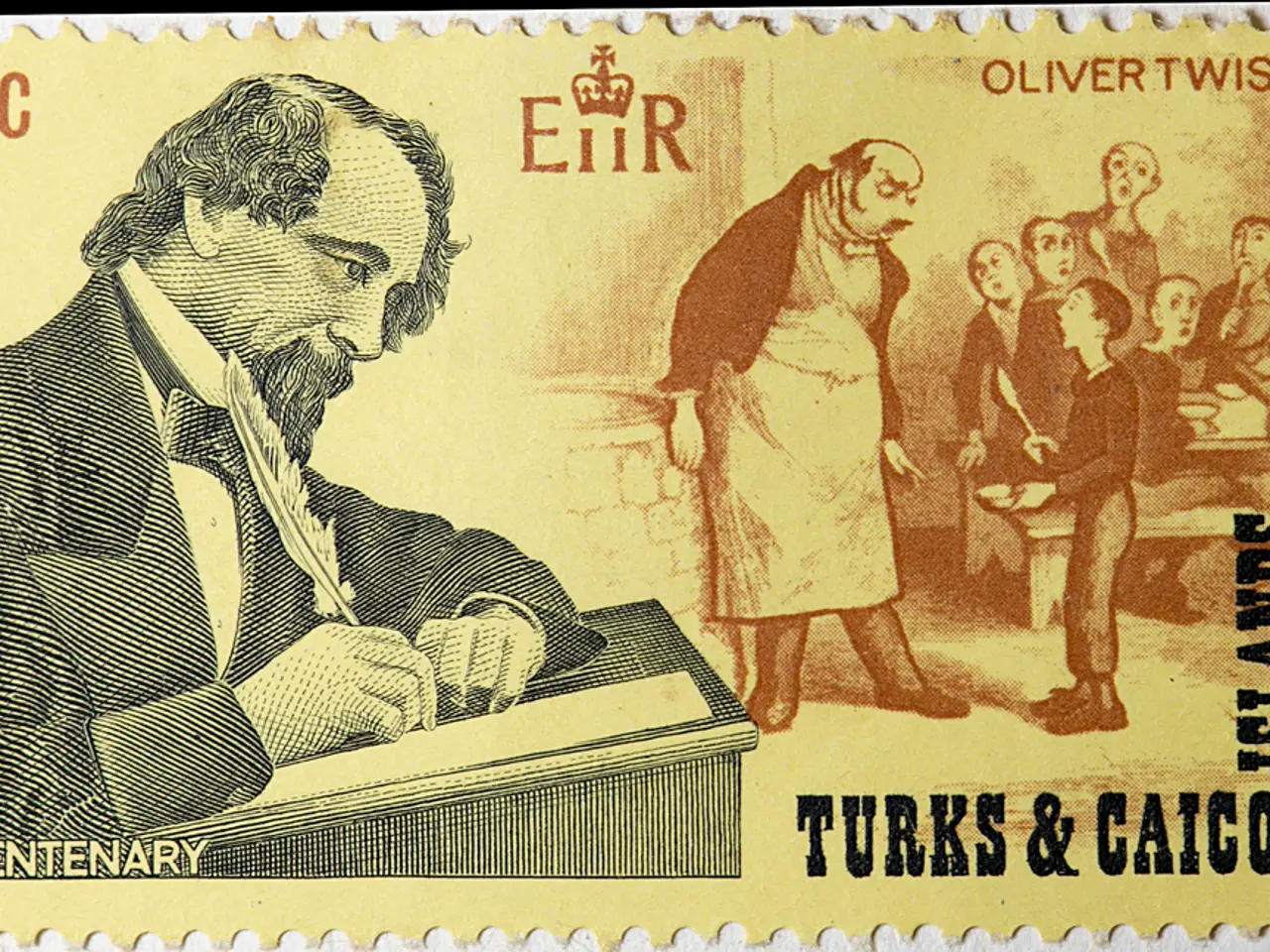Postal Service in Peril: Trump Proposes Commercialization of US Mail System
Hear This: The Postmaster General Could Be Reportedly Changing Hands Under Trump's Watch
In a potential game-changer for a centuries-old institution, President Trump is rumored to be up to something big with the U.S. Postal Service (USPS). Trump is said to be planning a shake-up, considering dismantling its independent board and transferring the agency's control to the Commerce Department.
The stakes are high for this move, with concerns swirling around the future of mail delivery in America and the potential implications for millions of citizens who depend on the USPS for essential services.
The Master Plan Unfolds
Multiple sources claim that Trump's administration is gearing up to dismiss members of USPS's current board, a move viewed as a step towards privatization. But the White House denies any immediate plans for an executive order, while reports indicate that such a move would allow the Commerce Department to take charge of the postal agency.
This potential power grab comes amid discussions about the financial health of USPS, which has been in the red for years, but recently showed signs of improvement.
What if it Goes Private?
If the USPS takes a private-sector turn, it could lead to some significant fallout:
- Universal Mail Delivery Under Threat: Currently, the USPS is mandated to deliver to every home and business, regardless of profitability. A privatized service could prioritize money-making routes, leaving rural areas underserved.
- E-commerce Disruptions: With billions of dollars worth of e-commerce transactions depending on the USPS for those crucial last-mile deliveries, any disruptions caused could cause a headache for both businesses and consumers.
- Employment Woes: The USPS employs approximately 640,000 workers, many of whom are veterans. Any changes could put these jobs on the line and send shockwaves through the labor force.
- Legal Bumps in the Road: Some legal experts believe that Trump's ability to privatize USPS without Congressional approval is limited due to existing federal laws governing postal services. The Postal Reorganization Act of 1970 established USPS as a quasi-independent agency, shielding it from political meddling.
Political and Public Reaction
Reactions from various stakeholders have been swift and harsh. Representative Gerry Connolly branded Trump's plans as an "unlawful attack" on a service enshrined in the Constitution. Postal unions warned that privatization would undermine the universal service obligation that ensures mail delivery for all Americans.
Past attempts by Trump to privatize USPS during his first term sparked fierce opposition, with lawmakers and public advocacy groups rising up in resistance.
As the drama unfolds, it remains to be seen whether Trump's plans for USPS will face a similar backlash or push forward, altering the American mail system as we know it.
Enrichment Insights:
While Trump has not yet confirmed any plans for outright USPS privatization, the administration and its supporters have pushed for significant changes, increased private-sector involvement, and a rollback of modernization efforts, which could impact mail delivery, e-commerce logistics, job security, and service quality. Unions continue to resist these changes, negotiating contracts and organizing opposition to layoffs and privatization, and these tensions contribute to ongoing legal and political debates about the future of the USPS.
- Such a shift in control of the USPS could have far-reaching implications for the African market, as the postal agency plays a vital role in the import and export of goods, particularly crucial for e-commerce businesses.
- Financing and policy-and-legislation surrounding the USPS should be closely watched by businesses, not just within the United States, but globally, as any changes could dramatically affect logistics, delivery, and cross-border trade.
- The ongoing political climate and general news regarding the USPS are especially important for businesses involved in the e-commerce sector, as any disruptions in mail delivery could significantly impact their operations and bottom line.
- The potential shift towards privatization could raise questions about the universal mail delivery obligation, which may have consequences for markets and consumers on the African continent, where e-commerce markets are rapidly growing.
- Politics will likely play a significant role in the future of the USPS, as debates about privatization, modernization efforts, and job security continue to heat up among lawmakers and unions.
- Staying informed on the status of USPS policy and legislation will be essential for businesses in the e-commerce sector as they navigate the complexities of international logistics and delivery.




